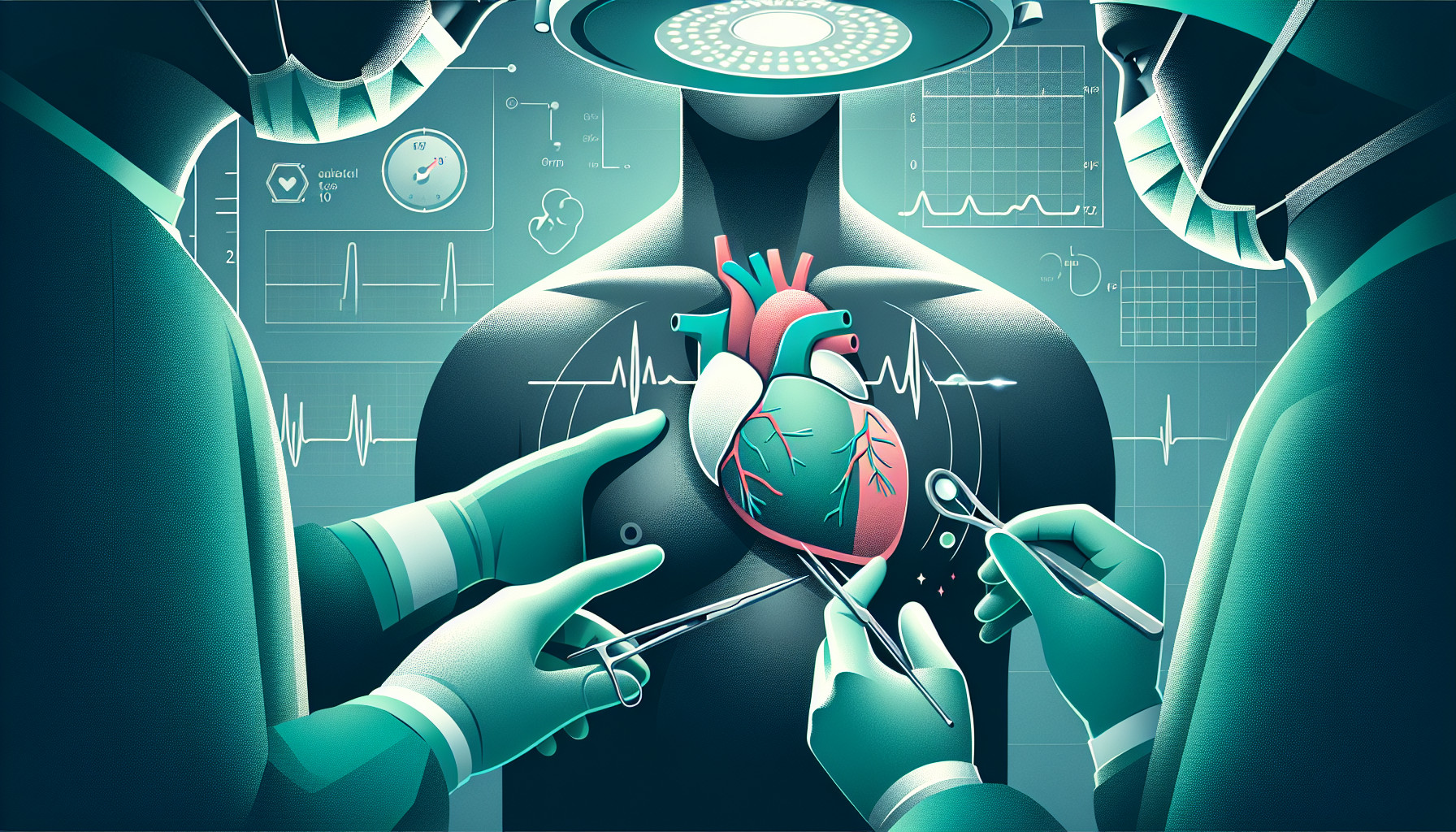Our Summary
The research paper is about a study that looks into the long-term survival of patients who have had mitral valve surgery after receiving mediastinal radiation therapy (MRT) for cancer. The mitral valve is an important part of the heart that helps control blood flow. Sometimes, this valve can be damaged, either by disease or by treatments like radiation therapy for cancer, and may need to be repaired or replaced through surgery.
In this study, the researchers looked at the medical records of 148 patients who had mitral valve surgery following MRT between 2001 and 2018. They divided the patients into two groups: those who had their mitral valve repaired and those who had it replaced. They tried to make sure the two groups were similar in terms of age, gender, and whether they had other health problems like lung disease or heart failure.
The researchers found that whether the valve was repaired or replaced did not make a difference to the patients’ long-term survival. Both groups had lower survival rates than what would be expected for people of the same age and sex who hadn’t had this type of surgery. They also found that having MRT for cancer negatively affected the survival of patients who underwent mitral valve surgery.
In conclusion, the usual benefit of repairing the mitral valve over replacing it didn’t apply to patients who had received MRT for cancer.
FAQs
- What is the purpose of the study presented in the research paper?
- What did the researchers find about the long-term survival of patients who had mitral valve surgery following MRT for cancer?
- Does repairing or replacing the mitral valve have a different impact on the long-term survival of patients who have received MRT for cancer?
Doctor’s Tip
A helpful tip a doctor might tell a patient about mitral valve replacement is to ensure they follow their post-operative care instructions carefully, including taking any prescribed medications, attending follow-up appointments, and participating in cardiac rehabilitation if recommended. It is also important for patients to maintain a healthy lifestyle, including regular exercise and a balanced diet, to support their overall heart health and recovery after surgery. Additionally, patients should be aware of any potential complications or signs of infection following surgery and seek medical attention if they experience any concerning symptoms.
Suitable For
Patients who are typically recommended for mitral valve replacement include those with severe damage to the mitral valve that cannot be effectively repaired, those with valve regurgitation or stenosis that is causing symptoms such as shortness of breath or fatigue, and those with a history of mediastinal radiation therapy for cancer who may be at higher risk for complications with valve repair. These patients may benefit from mitral valve replacement to improve their symptoms and overall quality of life.
Timeline
Before mitral valve replacement:
- Patient undergoes mediastinal radiation therapy (MRT) for cancer.
- Mitral valve becomes damaged as a result of disease or radiation therapy.
- Patient experiences symptoms such as shortness of breath, fatigue, and chest pain due to mitral valve dysfunction.
- Cardiologist recommends mitral valve surgery to repair or replace the damaged valve.
After mitral valve replacement:
- Patient undergoes mitral valve surgery to repair or replace the damaged valve.
- Recovery period following surgery, which may include hospitalization, physical therapy, and medication management.
- Follow-up appointments with cardiologist to monitor progress and adjust medications as needed.
- Long-term monitoring of the patient’s heart function and overall health to ensure the success of the mitral valve replacement.
- Research study shows that patients who have had mitral valve surgery following MRT for cancer have lower survival rates compared to the general population, regardless of whether the valve was repaired or replaced.
What to Ask Your Doctor
What are the potential risks and complications associated with mitral valve replacement surgery?
How long is the recovery process after mitral valve replacement surgery?
Will I need to take any medication after the surgery, and if so, what are the potential side effects?
How often will I need to follow up with you after the surgery?
Are there any lifestyle changes I should make to improve my long-term outcome after mitral valve replacement surgery?
Are there any restrictions on physical activity or exercise after the surgery?
How will mitral valve replacement surgery affect my overall heart health?
Are there any specific signs or symptoms I should watch out for that may indicate a complication after the surgery?
Will I need to undergo any additional tests or procedures in the future to monitor the function of my new mitral valve?
How does my previous history of mediastinal radiation therapy for cancer impact the risks and outcomes of mitral valve replacement surgery?
Reference
Authors: Pahwa S, Crestanello J, Bernabei A, Schaff H, Dearani J, Lahr B, Greason K. Journal: Semin Thorac Cardiovasc Surg. 2022 Winter;34(4):1197-1204. doi: 10.1053/j.semtcvs.2021.09.002. Epub 2021 Sep 8. PMID: 34508812
